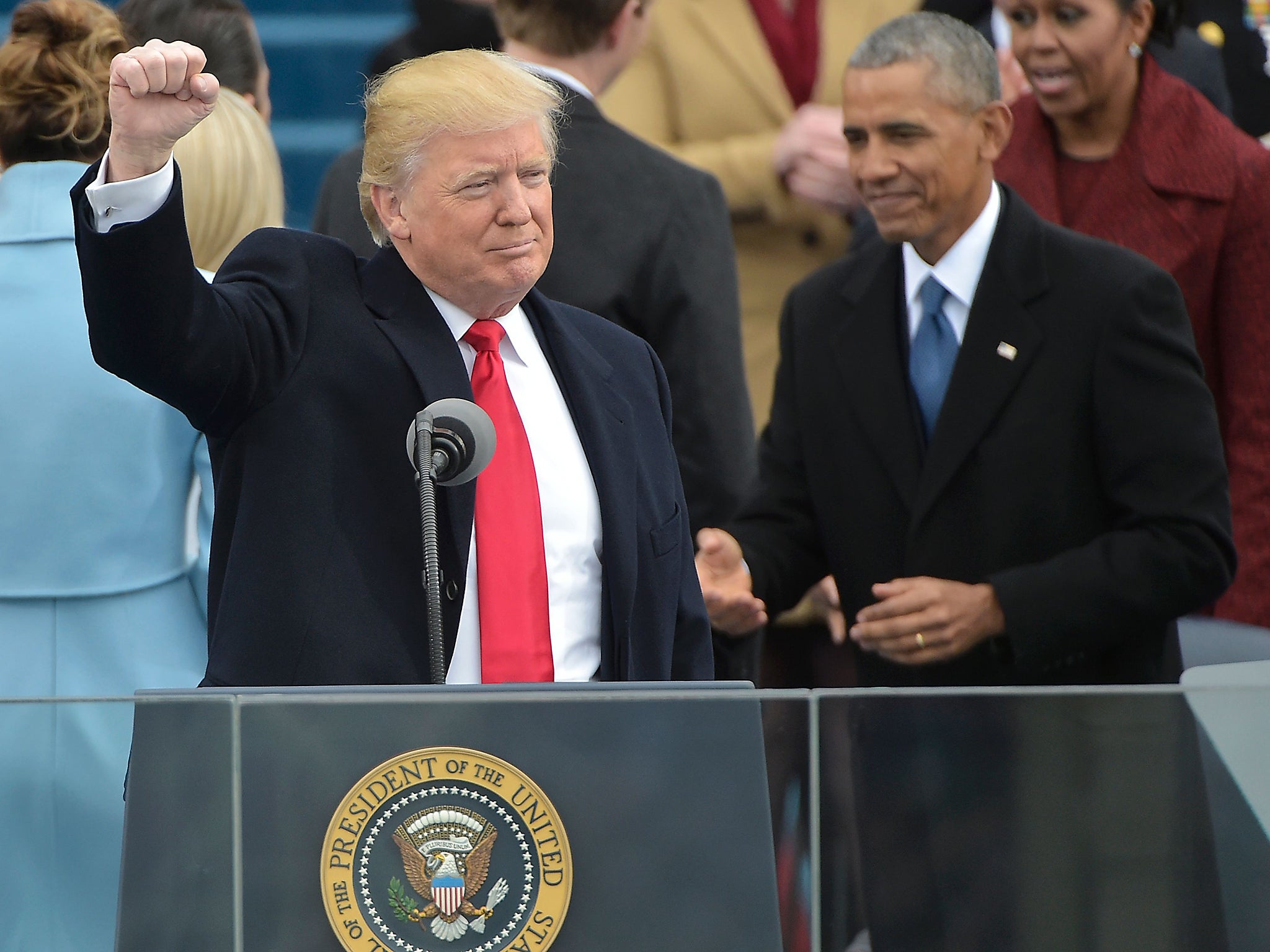Donald Trump had better get his first meeting with Putin right – or it could be his last
Trump says both country’s nuclear arsenals could take a cut. Whether Trump’s idea of bartering nuclear against an end to sanctions over Ukraine has any appeal for the Kremlin, however, is another matter


A thaw with Moscow was one of the few points on which Trump remained steadfast, not just through the election campaign, but through his beleaguered transition. Once in office, he will face pressure from three directions.
From large parts of Congress, as well as from much of the defence and security establishment, will come the warning: just don’t do it. Even those more favourably inclined towards a Russian reset will advise that he should not move too fast, lest he appear too eager. The third source of pressure will be Russia itself: the Kremlin will want, and need, the new President to show that he is serious.
Trump himself will probably want to gauge the chances of mending fences with Vladimir Putin as soon as possible. And he will want to make that judgement himself. Both at his press conference before taking office and in recent interviews, he countenanced the risk of failure, but he has invested political capital in what is essentially a hunch, that he and the Russian president will get on. He will want to make up his mind about Putin face to face.

Unconfirmed reports say plans are being laid for an early US-Russia summit in a third country – on the model of the first careful Reagan-Gorbachev encounter – and this is probably how Putin, too, will want to play it. Reykjavik has been mentioned, but might send the wrong vibes, as that summit – unlike the first Reagan-Gorbachev meeting in Geneva – concluded without agreement. Lake Bled in Slovenia might be another possibility; this is where George W Bush claimed to have seen into Putin’s soul, and Slovenia happens to be the home country of Melania, the new First Lady.
The US security establishment will be wary, and Trump’s entourage will surely agree that any bilateral meeting will have to be as meticulously planned as the first Reagan-Gorbachev encounter. Jack Matlock, who subsequently became US ambassador in Moscow, but was then a Soviet specialist in the National Security Council, has reminisced about the USSR-101 briefing documents he prepared for Reagan before that meeting, and Trump will probably commission something similar: basic, pointing out the pitfalls, but sympathetic towards the direction he wants to go.
Hints have been dropped about some of the early themes. Trump has said that in his view both sides’ nuclear arsenals could take a cut. Arms control is often a good place to start in US-Russia discussions, because this is where Russia feels itself more equal and has room to broach concessions.
Whether Trump’s idea of bartering nuclear reductions against an end to Ukraine-related sanctions has any appeal for the Kremlin, however, is another matter. Moscow may well see the two things as belonging in quite different boxes, and its desire for an end to sanctions has more to do with national dignity and image than with economic necessity.
That said, however, such a deal could help to disguise the reality that any phasing out of US sanctions will be more unilateral than bilateral, as anything that entails even de facto recognition of Russia’s annexation of Crimea will amount to a Western climb-down. Moscow, too, could welcome a way of extracting itself from the Ukraine tangle that leaves it in charge of Crimea. Several prominent Ukrainians have also suggested a deal along similar lines, though public opinion might be another matter.
The complexities of Ukraine – and the risk of allowing Russia to appear too much the victor – might militate in favour of pushing Ukraine a little down Trump’s list and moving instead towards some form of cooperation on Syria settlement and perhaps Afghanistan. On Syria, Trump comes to office without the precondition set by Obama for any Syria agreement, that President Assad should leave office first, and Russia has recently indicated that it sees both the UN and the US as playing a role in whatever happens in Syria next.
Whether the first Trump-Putin meeting is productive or not, however, will depend not just, or even mainly, on the specific topics chosen, but on whether Putin feels that Trump understands his concerns and Trump feels he can trust Putin to honour his commitments.
Early signs are mixed. During his campaign Trump seemed to appreciate, in a way Obama and Hillary Clinton apparently did not, how the world might look from the Kremlin. But both Trump and Putin have a strong sense of their own dignity that could spell trouble, and for Trump time will be of the essence. Unlike most new presidents, he will be beholden to no one – as he funded most of his campaign himself – and, at 70, he is likely to be a president in a hurry.
Putin clearly wants a new relationship with the US and was concerned to do nothing during the transition that would set the wrong tone – to the point of not retaliating to Obama’s diplomatic expulsions. But he will have to be careful how he approaches his first Trump encounter, because he cannot expect a second chance.
Join our commenting forum
Join thought-provoking conversations, follow other Independent readers and see their replies
Comments
Bookmark popover
Removed from bookmarks